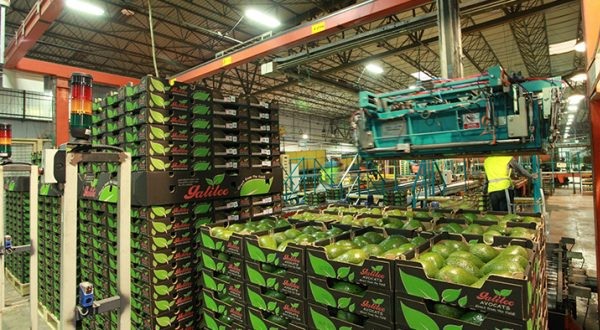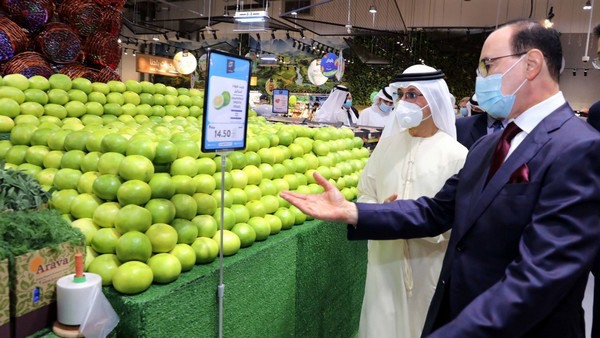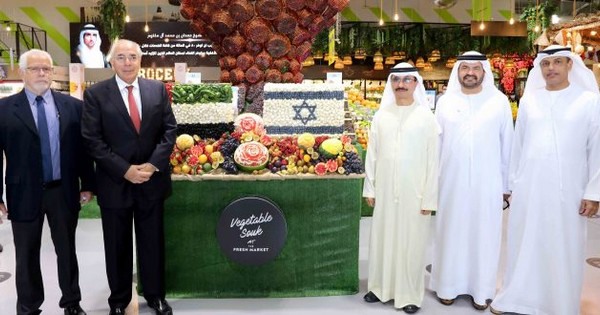In September, the UAE and Israel signed a historic peace agreement. “But the agriculture agreement was only made very recently,” says Eitan Zvi, Marketing VP at Galillee Exports in Israel. Nevertheless, on Friday, 6 November, this company sent its first shipment of avocados to that country.
"The shipment passed all the relevant checks. We’re very proud to be the first to export the first avocado shipment to Dubai. We hope for continued fruitful cooperation between Israel and the Emirates."
 Photo: Produce of Galil Export
Photo: Produce of Galil Export
Israel received official approval from the UAE to export fresh agricultural produce and propagating material (including seeds) from Israel to the Emirates. That was after a series of (secret) meetings. These were between the Emirates authorities and the Israeli Minister of Agriculture and Rural Development, Alon Schuster, and his office director, Dr. Nahum Itzkovich.
Completely unexpected
The signing of the peace agreement was a huge surprise to everyone in Israel. “Nobody expected it,” admits Eitan. “The UAE is the gateway to Saudi Arabia and surrounding countries. There’s great potential in that area. We have to work toward getting the right contacts there.”
“There is the same competition - Mexico and Colombia - there as in Europe. We have to find the right clients for the right prices and quality. We’d like to reach the stage of exporting 200 tons of avocado to the UAE,” says Ziv.
This market represents an important addition for the Israeli company. “Especially since we don’t have many other opportunities. It’s impossible for us to get into America. China and India are currently closed for Israeli products. Japan is open, but it’s a challenge for us to get there, logistically. Now, finally, we have another market.”
Dates
Eitan sees chances for other products too. It was not only avocados that were sent to the Emirates. Israeli companies also sent citrus fruits, pomegranates, and 200kg of Medjool dates. “We need to introduce people there to Medjool dates. It’s sometimes more difficult to penetrate markets that are used to certain products.”
“There is some demand for citrus, red grapefruit, and pomegranates. Although it’s not mango season now, I see a lot of potential for this product in the UAE. I think that will be the second major product to be sent there.”
 Photo: Display with Israeli produce at Dubai’s Fresh Market (Source: Government of Dubai)
Photo: Display with Israeli produce at Dubai’s Fresh Market (Source: Government of Dubai)
The first-ever display of Israeli produce was opened at Dubai’s Fresh Market last weekend too. This market plays a crucial role in raising Dubai’s position as a regional trading hub for local and imported produce. The introduction of Israeli produce adds to Dubai’s drive to diversify imported produce sources in the Emirates.
‘We’re excited’
The event was attended by various dignitaries, including Shlomi Fogel, Chairman of exporting company Carmel Agrexco. "We’re excited to be part of the growing ties between Israel and the UAE,” he said in an article on the Government of Dubai’s Media Office website.
“Together with our colleagues in Dubai, we’re starting to see the ‘fruits of peace’ today. The export of fresh agricultural products from Israel to the UAE market has a significant advantage. [This is because of its] geographical closeness and the speed with which products can be transported.

These products can go directly to markets in the UAE and its neighboring regions. “Within a few hours of picking, the fresh produce can reach points of sale. Israeli agriculture is highly advanced, and we’re confident that everyone will enjoy our products,” Fogel said. He added that Carmel Agrexco intends to invest in agricultural farms in the UAE, incorporating the latest agro-technology innovations.
But, another Israeli company, Ben-Dor Fruits, has been exporting its products to the UAE for many years. That’s thanks to its farms and licensees around the world. “We’ve been doing this for a while from other territories,” says Ido Ben Dor, Ben-Dor Fruits’ Orchard and Breeding Manager.
‘More interesting’
“But now it will be more interesting since we’ll work directly from our Israeli farm's production. There are few things Israeli products can compete with, price-wise. There’s room to do business, especially with the Israeli products’ superior quality and niche products.”
“Distance is also a factor in favor of Israeli production,” adds Ido.”There’s a lot of hubbub at the moment - middlemen trying to establish connections; exclusivity announcements around the new opportunities between the two countries. However, ultimately, sustainable trading will be based on quality and pricing.”

Photo: Stonefruit varieties of Ben-Dor Fruits
Ben-Dor Fruits has a good long-term, respected relationship with their partners in UAE. “We supply yearly programs from our farms around the world. Quality and flavor are our clients’ main criteria. For the coming season, we’ll start supplying from Israel.”
Great export potential
Ido sees excellent export potential for his company. “I was delighted to hear the news of the peace agreement. Not only because of the business potential it brings, but because, here in the Middle East, many barriers need to be overcome. This is a step closer towards peace in the region.”
 Photo: EDEN Pear variety of Ben-Dor Fruits
Photo: EDEN Pear variety of Ben-Dor Fruits
In the past year, Ben-Dor Fruits started a new project. They want to grow varieties that can withstand the hottest temperatures within the UAE territory. “This initiative started well before the peace talks.”
“But, since the normalization of diplomatic relations, things became easier to manage. The purpose is to find the best species and varieties to grow commercially. As we say in Israel, we want to ‘forest the desert’,” concludes Ben Dor.
